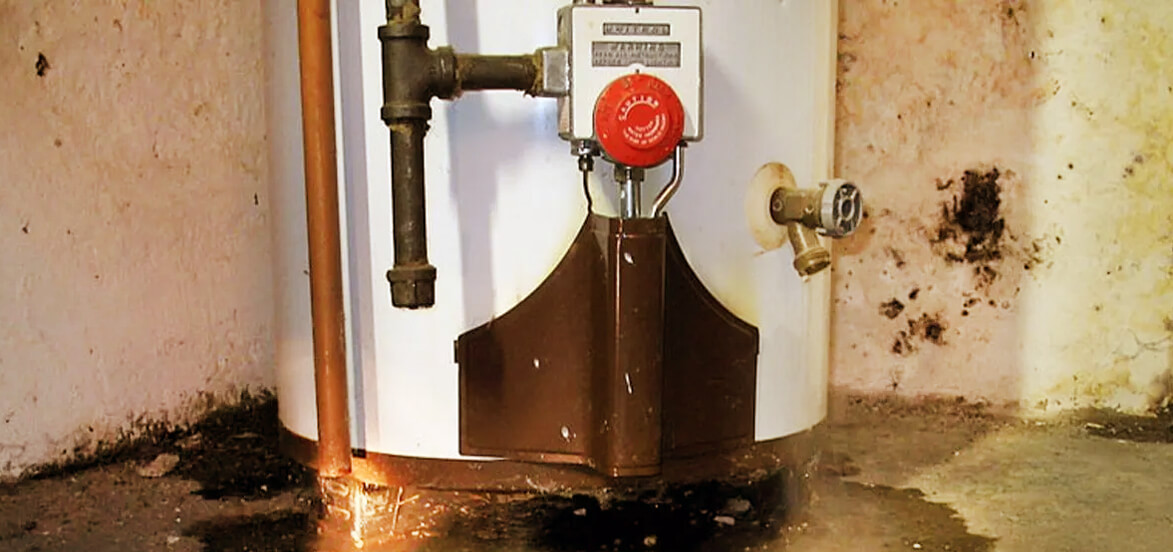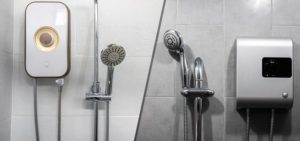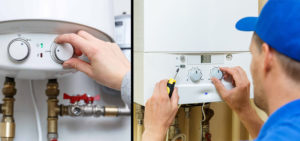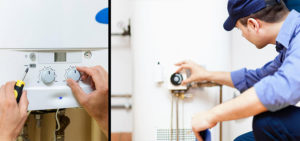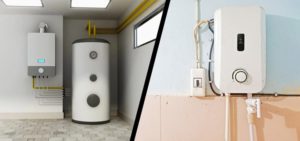Primary Indicators of a Failing Water Heater
Water heater repair services are often forgotten, but they should be looked after as often as other appliances. Water heaters repair and maintenance can save you money down the road. If your water heater is more than 10 years old, it may be time to replace it. It’s actually fairly inexpensive to do so as replacements even come with a warranty. Water heaters that aren’t correctly installed or maintained can give off toxic gases like carbon monoxide (CO), which is odorless and colorless, so knowing how to handle issues with your water heater is key.
Regular maintenance of water heaters is necessary to ensure that they continue working for years to come. If you don’t have your water heater system inspected regularly, chances are you’ll look for a new water heater at some point. Once you get to know how easy it is to keep things in good working order, though, you may just start scheduling annual emergency water heater repairs and maintenance instead of waiting until something breaks down or stops functioning properly. You don’t need to get stuck paying more if you can fix what you already have.
Warning Signs Your Water Heater is Dying
Failing water heaters, both gas and electric, are a common occurrence. They stop working anytime, right? You can’t tell if your water heater is failing, but luckily there are some telltale signs that let you know when it’s time to replace your old one. Here’s how to know if your water heater is failing:
Lack Of Hot Water
If you don’t have hot water when you want it, your first thought might be to check your thermostat and make sure that it’s set properly. But if that doesn’t fix things, and you hear a banging noise when there’s no one in your house, probably your water heater is making some clanking noises because of sediment buildup in the tank. Your hot water tank heats up just like any other container of liquid — by changing its temperature — so anything inside gets tossed around pretty aggressively, causing sediment to move around and bang into other stuff. The more stuff gathered, there would be more banging when there’s no one at home.
When your water heater fails, you have to replace it. But what if your new water heater is so much better than your old one? In those instances, replacing a high-efficiency water heater may be a worthy investment. However, high-efficiency tankless water heaters charge more than the conventional water heater. For those who’re hoping to recoup some of that money by selling your old one, ensure to check for a leak before doing so if you don’t want any surprises down the road!
Yes, it’s expensive to replace a water heater, but if you’re missing out on hot water, you might want to consider investing in a new one. A good rule of thumb is to replace your water heater every ten years or so. After that, they have an increasingly hard time keeping up with hot-water demand in your home.
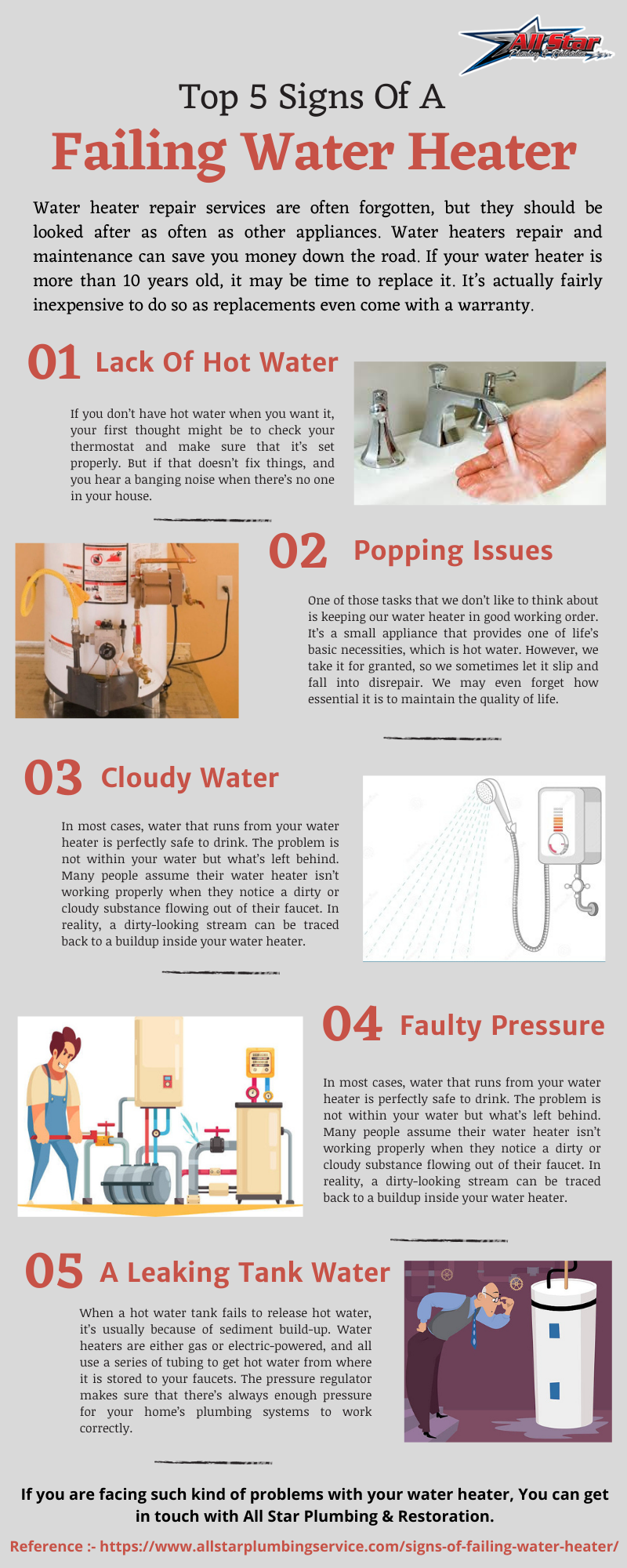
Popping Issues In Water Heater
One of those tasks that we don’t like to think about is keeping our water heater in good working order. It’s a small appliance that provides one of life’s basic necessities, which is hot water. However, we take it for granted, so we sometimes let it slip and fall into disrepair. We may even forget how essential it is to maintain the quality of life. When your water heater starts making strange popping noises or rattling sounds, call out a professional for water heater repair services as soon as possible to prevent serious damage from occurring. Water that is heated through a water heater generally cools before being reused. This causes minerals in your pipes to form pockets of air, which can lead to some unpleasant popping sounds. To get rid of these pops, it’s advised that you leave your faucet running for at least 30 seconds before taking a shower or bath.
Cloudy Water From Water Heater
In most cases, water that runs from your water heater is perfectly safe to drink. The problem is not within your water but what’s left behind. Many people assume their water heater isn’t working properly when they notice a dirty or cloudy substance flowing out of their faucet. In reality, a dirty-looking stream can be traced back to a buildup inside your water heater.
If the water coming from the heater is cloudy, it’s a sign that sediment and mineral deposits have built up in your tank. This sediment can block valves and prevent hot water from reaching shower heads and taps, resulting in a low-flow shower or weak faucet spray. Cloudy water is also a sure sign that you need to descale your appliance. Descalers are chemical products used to dissolve hard scale, calcium, and magnesium buildups. These deposits can clog screens inside gas valves as well as pipes leading into your tank. To eliminate cloudiness from your hot-water supply, fill your tank with clean water and add 1 gallon of boiling water to help break down any remaining scales. Let everything sit overnight before draining out the dirty water and refilling with fresh, clear cold tap water. Repeat once more after 24 hours if there’s still any remaining residue. After that, turn on all hot-water fixtures for 20 minutes or so. This allows any remaining particles to be flushed out by running through all of their pipes.
Water Heater Leaking Or Faulty Pressure
Check your water heater for signs of leakage. This is one of the most common problems that can lead to high water bills, or even worse – it can damage your home. An easy way to check for leaks is to check behind it after it’s been running for a few minutes; any standing water should be cause for concern. If you find evidence of leakage, turn off your power and call a professional for water heater services. You can also keep an eye on your bills—if they seem unusually high, you might have a leak.
When you notice water stains on your ceilings, floors, or walls, it could be caused by your water heater. The pressure gauge in your water heater is faulty and needs to be replaced. You will also need to remove mineral deposits that may have built up over time. However, this may be an inexpensive fix, but it is necessary if you want to avoid damage in your home caused by leaks. Mineral deposits reduce how much heat escapes out of your hot water tank. Over time, they can build up to a dangerous level, causing pipe leaks and other issues if not corrected immediately. If you have a faulty pressure gauge on a gas water heater, carbon monoxide can start seeping into other parts of your home if not fixed quickly enough.
A Leaking Tank Water
When a hot water tank fails to release hot water, it’s usually because of sediment build-up. Water heaters are either gas or electric-powered, and all use a series of tubing to get hot water from where it is stored to your faucets. The pressure regulator makes sure that there’s always enough pressure for your home’s plumbing systems to work correctly, but it can cause trouble if sediment builds up in front of it. However, this causes low-pressure scenarios, which won’t allow you to access hot water at all. If you suspect that your water heater is leaking due to low-pressure issues, try turning off each faucet individually while waiting for hot water.
It is a good idea to check your water heater or hot water tank periodically. You can test for leakage using soapy water. As soon as you see a leak, you will want to call your plumber and have it repaired as soon as possible. Leaking tanks are not usually repairable, and most often, they need to be replaced entirely. So, there is a chance that most of your hot water is leaking out into your floor or outside instead of warming up your body when it is coming through the showerhead.
If you have a leaky water heater or tank, you can fix it yourself. The first step is to make sure you know where your water heater is and how to turn it off. To shut off your water heater, turn off its main shutoff valve that will stop the flow of gas and drain any remaining hot water from your unit. It’s usually next to your meter or outside in an accessible garage or basement. Next, detach the supply lines from both sides of your unit by unscrewing them until they come loose from their connection points on either side of your gas heater. After that, you’ll need to get under it and find out where exactly your leak is coming from so that you can repair it with a new piece of pipe.
Age Of The Water Heater
Check to see how old your water heater is. The average lifespan of a standard tank-style heater is 8 to 12 years, but if it’s older than that it could be nearing failure. If you’ve been using it for ten years since installation, it may be time to get a new one.
For example, you’ll be pushing it with an old unit if you’re located in a very humid climate or have hard water. But if your hot water isn’t stored inside (some units are installed directly beneath sinks), you can also expect shorter life spans. On top of these general factors, check your model because not all tanks last long. A new unit will last longer than one manufactured several years ago, just like today’s smartphones outlast their predecessors.
Once it reaches its end of life, look into tankless systems. Not only are they energy-efficient, but they’re also easier to replace when needed because you can buy them in-unit rather than getting an entire hot water heating system
Alleviate Failing Water Issues With Professional Emergency Water Heater Repair Services
We all expect our water heaters to work. The fact that you can’t take a hot shower or enjoy a nice warm bath is probably going to rank pretty high on your list of things that bug you about your home, especially if it’s been going on for a while. If your water heater is broken and you’re not handy, it’s time to call in an expert for emergency water heater repair services. After all, a malfunctioning water heater can be a major liability when left unchecked.
In addition to making sure that your new system is installed properly, it’s vital for you to choose our accredited professionals. They are certified and experienced in installing water heaters and have access to all of the necessary equipment. Also, they assist you with insurance coverage in case something goes wrong. Moreover, we will help ensure that your new water heater works correctly for years to come. They will even educate you on how to care for your system once installed.
When you go for our water heater repair services, you get assurance that you won’t experience further damage to your plumbing. Our plumbers are experts in identifying problems and working through them, so you can rest assured that they’ll find any hidden leaks and stop them from causing extensive damage. However, you should call us immediately, so they can prevent further failures and recommend solutions for preventing future failures. It might even be easier than you think as we offer 24-hour service, so you can schedule an appointment when it’s convenient for you.
Hiring an expert will save your time along with cost-effective services. Hence, instead of having to spend hours researching how to fix your water heater failure by reading manuals and tearing through YouTube videos, you need to just call us. Our professionals will do everything for you – fast and effectively – with their years of expertise. With every interaction, you can expect honest answers from an expert who is sincerely interested in giving your household or business everything it needs in order to function at its best.


